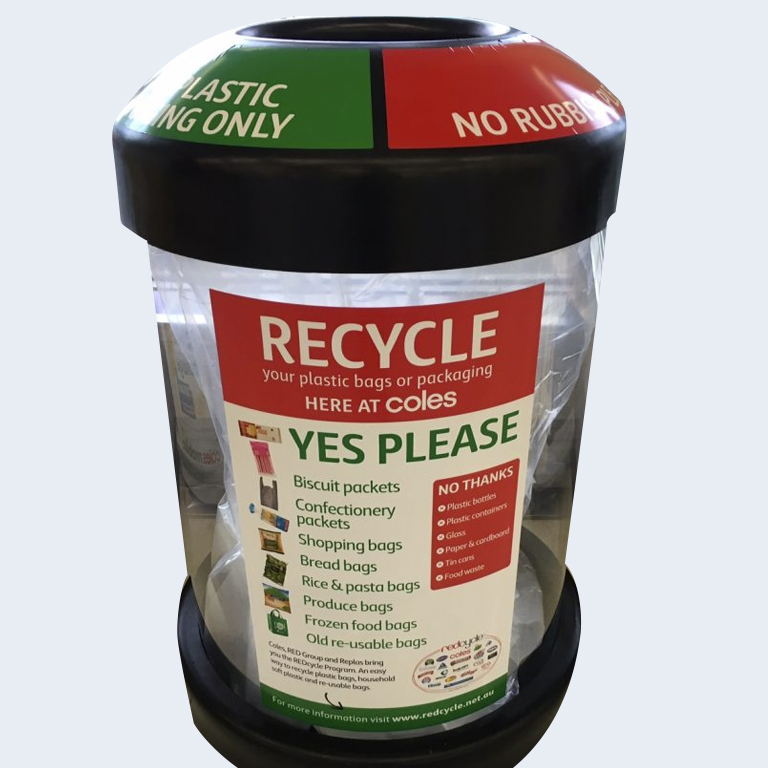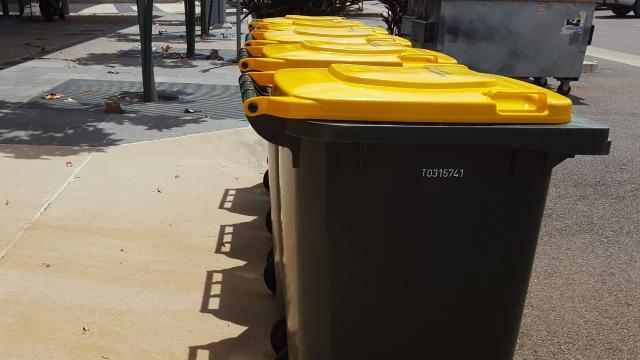Recycling is an important part of waste reduction but it’s very easy to get wrong. With so many different packaging materials these days it can be hard to tell which items can and can’t be recycled in your yellow bin. Soft plastics fits in the ‘can’t recycle’ category, but thankfully there’s a solution.
The REDcycle program has been building in popularity in Australia but there’s still a startling amount of people who aren’t aware of it. This, my friends, is the solution to recycling your soft plastics.
So what is a REDcycle bin and what can you put in it?
What is the REDcycle program?
REDcycle is an environmentally friendly recycling option that takes care of most soft plastic items. Curbside bins can’t process soft plastics because they often jam automatic sorting machines.
The REDcycle program takes materials back to a facility for processing and then distributes them to local manufacturing partners including Replas, Close the Loop and Plastic Forests. None of it goes into landfill.
What can you put in a REDcycle bin?

According to the REDcycle website, these are the items the program will take:
- Biscuit packets (outer wrapper only)
- Bread bags (without the tie)
- Bubble wrap (large sheets cut into A3 size pieces)
- Cat and dog food pouches (as clean and dry as possible)
- Cellophane from bunches of flowers (cut into A3 size pieces)
- Cereal box liners
- Chip and cracker packets (silver lined)
- Chocolate and snack bar wrappers
- Cling film – GLAD, Coles Home brand and Woolworths Essentials Home brand only
- Confectionery bags
- Document sleeves (remove the white reinforcement strip along the holes)
- Dry pet food bags
- Fresh produce bags
- Frozen food bags
- Green bags (Polypropylene Bags)
- Ice cream wrappers
- Large sheets of plastic that furniture comes wrapped in (cut into A3 size pieces)
- Netting produce bags (any metal clips removed)
- Newspaper and magazine wrap
- Pasta bags
- Pet food bags (chaff/horse/chicken) – both the plastic and woven polypropylene types (but not woven nylon). Cut into A3 size pieces and shake free of as much product as possible
- Plastic Australia Post satchels
- Plastic carrier bags from all stores
- Plastic film wrap from grocery items such as nappies and toilet paper
- Plastic sachets
- Potting mix and compost bags – both the plastic and woven polypropylene types (cut into A3 size pieces and free of as much product as possible)
- Rice bags – both plastic and the woven type (if large, cut into A3 size pieces)
- Snap lock bags / zip lock bags
- Squeeze pouches with lid on (e.g. yogurt/baby food)
- Wine/water bladders – clear plastic ones only
There is also a number of items the REDcycle program won’t take, such as plastic bottles.
Where can you find these bins?
REDcycle bins don’t have the convenience of a curbside bin, but they’re still very easy to find and use.
Most local supermarkets, including Coles and Woolworths, have REDcycle bins stationed near the checkout. All you have to do is collect your soft plastics and bring them with you to your next shop.
You can check if there’s a REDcycle collection point near you using this handy map.
By the way, don’t forget you can save on your next grocery shop with one of our Coles promo codes.
Tips for recycling your soft plastics
In terms of preparing your materials for recycling, REDcycle says they should be “empty and dry but our recycling processes can tolerate a limited amount of contamination (such as a few crumbs or a bit of dried gravy). Please ensure your plastics are dry as wet plastic creates a mould problem for us.”
Contamination also includes any biodegradable bags, which break down before the processing can begin.
If you come across a REDcycle bin at the supermarket that is full, just ask a staff member at the service desk to take your items and they’ll add them to the collection.
Also, make sure that all items have the Australian Recycling Label on their packaging before taking them to a REDcycle station.
The REDcycle program hasn’t rolled out everywhere in Australia just yet, but if there’s one near you it’s well worth considering and will help you cut down your carbon footprint.

Leave a Reply
You must be logged in to post a comment.